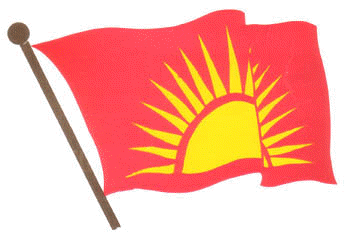Head of Sri Lanka's Peace Secretariat, Palitha Kohona, has told the visiting Norwegian Peace Envoy Jon Hanssen-Bauer, that the Sri Lankan government was reviewing a proposal of proscribing the Liberation Tigers of Tamil Eelam (LTTE), and had asked the Peace Envoy not to undertake his scheduled mission to Kilinochchi until a Government decision on Wednesday, according to media reports in Colombo. Analysts view the move as a step to effectively nullify the already defunct Ceasefire Agreement (CFA) that specifically prohibits all military offensives including aerial bombardment, offensive naval operations, assassinations, suicide missions and the activities by deep penetration units.
The CFA, as it entered the fifth
year, during the early stages of Mahinda
Rajapakse Presidency, was fundamentally breached
when paramilitaries were engaged by the Sri
Lanka military in a proxy war against the LTTE.
Adherence to CFA deteriorated from then as the
violence escalated into direct hostilities
between the parties of the CFA, severely
affecting the humanitarian situation in the
Northeast.
Sri Lanka Army (SLA) continued to intensify the
covert war by using the paramilitaries despite a
Government pledge to disarm them at the Geneva I
Talks in February 2002. In the aftermath of
talks, Sri Lanka refused to curtail the
activities of the paramilitaries, but instead
actively assisted them as recently accused by
UN's envoy, Allan Rock.
On 25 April, Sri Lanka Army commander Lt. Gen.
Sarath Fonseka was severely wounded in a bomb
attack near the military headquarters in
Colombo.
Sri Lanka Air Force (SLAF), launched aerial
bombardment and intensified the air strikes on
Trincomalee and subsequently imposed an economic
blockade, aggravating the humanitarian situation
in the district, and propelling the escalation
of violence in Trincomalee.
The Talks in Geneva (Geneva Talks II), scheduled
to take place April 2006, did not materialise as
efforts by the Norwegian facilitators to bring
the parties together failed.
The European Union, despite objections from the
Head of Sri Lanka Monitoring Mission (SLMM) Maj.
Gen. Ulf Henricsson, proscribed the LTTE as a
terrorist organisation on 19 May, a move later
viewed as having had a negative impact on the
peace process.
Parties clashed in direct battles in Trincomalee
and Jaffna in July and August 2006.
Ruthless counter-insurgency campaign targetting
Tamil civil society leaders, and terror campaign
on civilians inside Sri Lanka Army occupied
Jaffna and elsewhere in the island continue,
resulting in forced disappearances and
extra-judicial killings.
Mounting pressure by the International
Community, amid a military stalemate within a
widening war, brought the two parties to
Switzerland in October for Geneva II Talks. But
the parties failed to agree on de-escalating
measures or improve the detoriating humanitarian
situation.
LTTE leader, Velupillai Pirapaharan, in his
annual policy address on November 27, accused
Colombo for the failure of the implementation of
the CFA, charged the Sinhala leaders for
choosing the path of war, imposing a two pronged
war, military and economic, on the Tamil people.
All the clauses of CFA's Article 1 that contains
2 clauses under the chapter Military operations,
5 clauses under the chapter Separation of
Forces, and 5 clauses under Freedom of movement,
are violated.
Almost all 13 clauses of the CFA in Article 2,
Measures to restore normalcy, are violated.
Colombo by expressing its intention to
reactivate the Prevention of Terrorism Act
(PTA), has effectively declared that it will
only adhere to the two remaining articles of the
CFA, Article 3 on The Sri Lanka Monitoring
Mission, and Article 4 that specifies the
termination of CFA.

